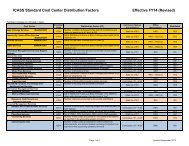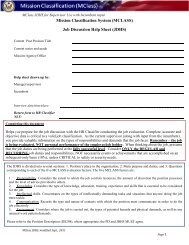Local Employment Policy Handbook - ICASS
Local Employment Policy Handbook - ICASS
Local Employment Policy Handbook - ICASS
You also want an ePaper? Increase the reach of your titles
YUMPU automatically turns print PDFs into web optimized ePapers that Google loves.
WHEN ACTUALLY EMPLOYED (WAE) WORK SCHEDULES<br />
Ordinarily Residents<br />
A “When Actually Employed” (WAE) work schedule is used for an employee without a regular tour of<br />
duty or established, regularly-scheduled workweek, on an as needed basic determined by the supervisor.<br />
The hours of work may vary weekly as they are based on the need of the section or agency. In other<br />
words, the supervisor doesn’t establish a standard part-time (16-32 hours/week) or full-time (40<br />
hours/week) work week.<br />
Examples of an established regular-scheduled work week include, but are not limited to:<br />
A. Monday through Friday, 8:00 am-5:00 pm<br />
B. Monday, Tuesday, and Thursday, 8:15 am-3:15 pm<br />
C. Monday, Tuesday, 9:00 am-2:00 pm, and Thursday, 8:00 am-5:00pm<br />
An employee working on a WAE work schedule may work part-time one pay period, full-time the next,<br />
or none of the following (two week) pay period. The supervisor sets the hours of work based upon<br />
section or agency need.<br />
Before employing an Ordinarily Resident under a PSA on a WAE work schedule, HR confirms that the<br />
WAE work schedule complies with local labor law. Examples:<br />
A. <strong>Local</strong> labor law requires that an employee obtains “permanent” status after working three<br />
calendar days and may not be terminated without cause. HR may not use a WAE work schedule<br />
for the Ordinarily Resident employee.<br />
B. <strong>Local</strong> labor law requires the Mission grant an employee a minimum number of work hours each<br />
workweek (for example, 10). HR and the supervisor must follow local labor law to guarantee at<br />
least 10 hours per week.<br />
In countries where local labor law doesn’t allow HR to establish WAE work schedules, Mission<br />
management needs to look at other legal employment options, or GSO procurements (if appropriate, in<br />
consultation with the Office of Procurement Executive, A/OPE).<br />
The International Compensation Manager in HR/OE/CM is the point of contact for questions about the<br />
Mission’s benefits for employees on WAE work schedules.<br />
An OR employee on a WAE work schedule is eligible for a step increase according to the Mission’s<br />
policy on WGIs. Each 2080 hours in a pay status, excluding overtime, is equivalent to 52 weeks.




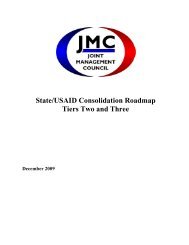
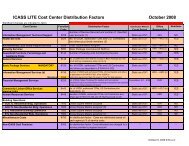
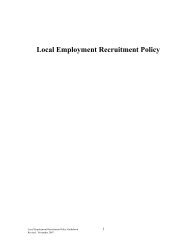
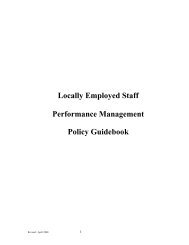
![Appendix D Reviewer Requirements Checklist GDB 2[1]. - ICASS](https://img.yumpu.com/37563692/1/190x245/appendix-d-reviewer-requirements-checklist-gdb-21-icass.jpg?quality=85)
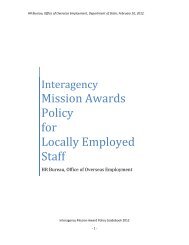
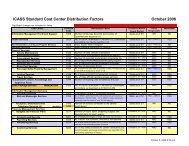

![GPAT for Web[1].ICASS GDB r2.31.00](https://img.yumpu.com/37563643/1/190x245/gpat-for-web1icass-gdb-r23100.jpg?quality=85)

